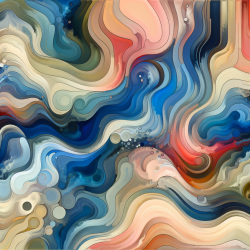The COVID-19 pandemic has drastically altered the landscape of mental health services, particularly for children, adolescents, and young adults. With traditional face-to-face interventions becoming challenging due to lockdowns and social distancing measures, online and remote therapy has become a vital alternative. A recent systematic review and meta-analysis titled Effectiveness of Online and Remote Interventions for Mental Health in Children, Adolescents, and Young Adults After the Onset of the COVID-19 Pandemic sheds light on the effectiveness of these interventions. This blog explores key findings from this research and offers insights on how practitioners can improve their online therapy skills.
Key Findings
The systematic review analyzed 17 studies with a total of 8,732 participants, focusing on various mental health outcomes. Here are some of the key findings:
- Anxiety: The meta-analysis revealed significant medium overall effects for anxiety (SMD=0.44), indicating that online interventions can effectively reduce anxiety symptoms in youth.
- Depression: A large significant effect was found for depression (SMD=1.31), showcasing the potential of online therapy to alleviate depressive symptoms.
- Social Functioning: Improvements in social functioning were also noted (SMD=0.42), highlighting the role of online interventions in enhancing social skills and interactions.
Implications for Practitioners
Given these promising results, practitioners can take several steps to enhance their online therapy skills:
- Leverage Established Techniques: Most effective interventions were based on well-studied therapies like Cognitive Behavioral Therapy (CBT), Acceptance and Commitment Therapy (ACT), and mindfulness-based interventions. Integrating these approaches into your online sessions can yield better outcomes.
- Focus on Engagement: High engagement and acceptability were reported for interventions that included interactive elements such as video conferencing, chatbots, and mobile apps. Incorporating these tools can make your sessions more engaging and effective.
- Training and Adaptation: The sudden switch to online therapy during the pandemic highlighted the need for further guidance and training for therapists. Participating in webinars, online courses, and peer support groups can help you stay updated and adapt to the evolving digital landscape.
Encouraging Further Research
While the findings are promising, the research also underscores the need for more high-quality studies, especially for outcomes like well-being, psychological distress, and disordered eating. Practitioners are encouraged to stay informed about ongoing research and consider participating in studies to contribute to the growing body of evidence.
To read the original research paper, please follow this link: Effectiveness of Online and Remote Interventions for Mental Health in Children, Adolescents, and Young Adults After the Onset of the COVID-19 Pandemic: Systematic Review and Meta-Analysis.










